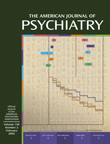Clozapine for First-Episode Schizophrenia
Mr. A was a 30-year-old man who came to the emergency room after attempting suicide by overdose. In the preceding 6 months, he had noticed feelings of being watched and feared a Mafia plot against him. He had delusions of reference about the television and thought that strangers knew his history. He claimed to have telepathy, thought that energy was passing between people, and heard voices telling him to kill himself. The emergency room physician proposed a diagnosis of paranoid schizophrenia, which was confirmed when measured against DSM-IV criteria upon his first hospital admission by a physician experienced in schizophrenia research.Six months earlier, Mr. A had been treated for depressive symptoms by a general practitioner, who prescribed an 8-week trial of paroxetine. Mr. A’s family history had revealed alcoholism, depression, bipolar affective disorder, and suicide by an uncle. Mr. A reported drinking two to three beers per week and occasionally using cannabis.When Mr. A was admitted for treatment of his first episode of psychosis, he initially had a short (2-week) trial of olanzapine. While he was still experiencing his first episode of psychotic illness, he consented to participate in the International Suicide Prevention Trial (InterSePT) and was given clozapine during a 4-week crossover period in which he received both antipsychotics. Clozapine, 12.5 mg/day, was gradually increased over 5 weeks to 100 mg/day and was maintained at a dose of 112.5 mg/day. Concomitant medication included only gabapentin, 2400 mg/day, for situational anxiety (3).Mr. A’s baseline scores were rated with the Positive and Negative Syndrome Scale (4) (positive symptoms: score=19, negative symptoms: score=20, total score=90), the Clinical Global Impression (CGI) scale (score=4), the Calgary Depression Scale (5) (depression: score=15, anxiety: score=5), the InterSePT Suicidality Scale (6) (score=9), and the Extrapyramidal Symptom Rating Scale (7) (parkinsonism: score=7, dyskinesia: score=1). After 8 weeks of treatment he had improved dramatically. He maintained this improvement, and after 2 years his total score on the Positive and Negative Syndrome Scale was 30 (minimal score=30), his CGI scale score was 1, his scores on the Calgary Depression Scale were 0 for both depression and anxiety, his InterSePT Suicidality Scale score was 0, and his score on the Extrapyramidal Symptom Rating Scale showed no movement disorder. After 2 years of clozapine treatment, he lives with a roommate and works full-time in the aviation industry.
References
Information & Authors
Information
Published In
History
Authors
Metrics & Citations
Metrics
Citations
Export Citations
If you have the appropriate software installed, you can download article citation data to the citation manager of your choice. Simply select your manager software from the list below and click Download.
For more information or tips please see 'Downloading to a citation manager' in the Help menu.
View Options
View options
PDF/EPUB
View PDF/EPUBGet Access
Login options
Already a subscriber? Access your subscription through your login credentials or your institution for full access to this article.
Personal login Institutional Login Open Athens loginNot a subscriber?
PsychiatryOnline subscription options offer access to the DSM-5-TR® library, books, journals, CME, and patient resources. This all-in-one virtual library provides psychiatrists and mental health professionals with key resources for diagnosis, treatment, research, and professional development.
Need more help? PsychiatryOnline Customer Service may be reached by emailing [email protected] or by calling 800-368-5777 (in the U.S.) or 703-907-7322 (outside the U.S.).

